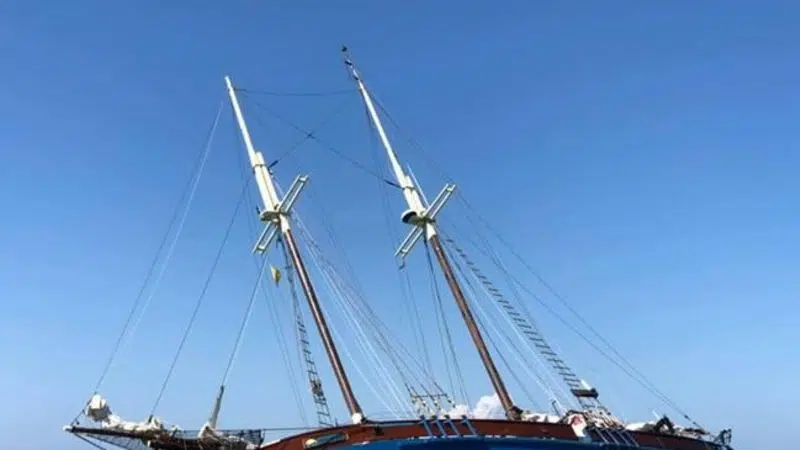
Last Quebec schooner of its kind threatened after grounding in Cuba
MONTREAL — Cuban authorities have backed off a threat to seize the last surviving St. Lawrence River schooner, which ran aground on a beach in the Caribbean country on Jan. 27.
But the danger remains very real for the Grosse-Ile, the last seaworthy vessel of its kind and an important piece of the province’s maritime heritage.
The ship’s owner, Didier Epars, and his son Vincent were forced to ground the ship to avoid sinking after its engine failed during an intense storm.


